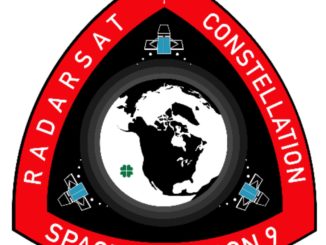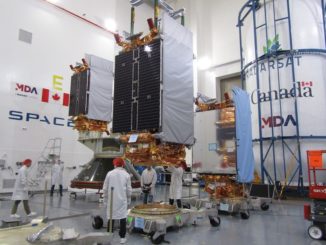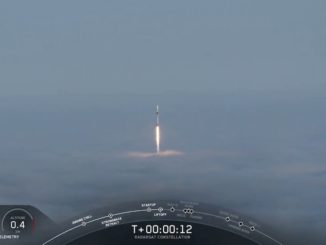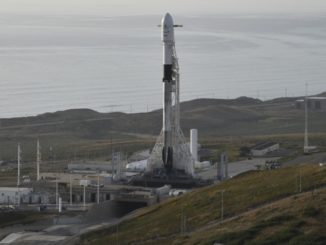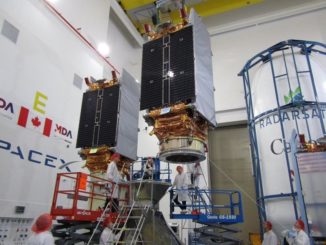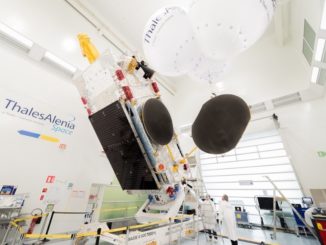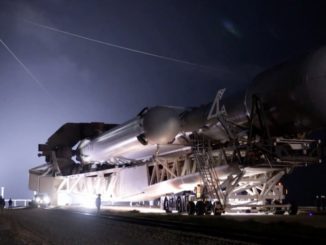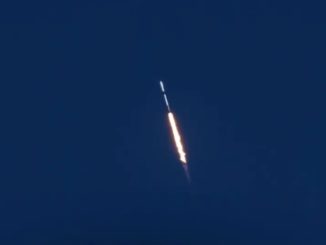
Three Canadian radar surveillance satellites ride SpaceX rocket into orbit
A SpaceX Falcon 9 rocket fired through a dense shroud of coastal fog and climbed into orbit Wednesday from Vandenberg Air Force Base in California, deploying a trio of radar observation satellites to begin a $900 million mission surveying the Arctic, maritime waters, forests and farmland for the Canadian government.

